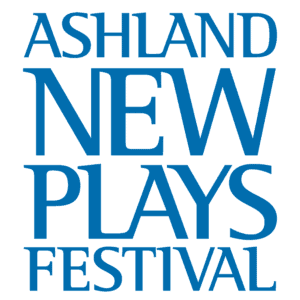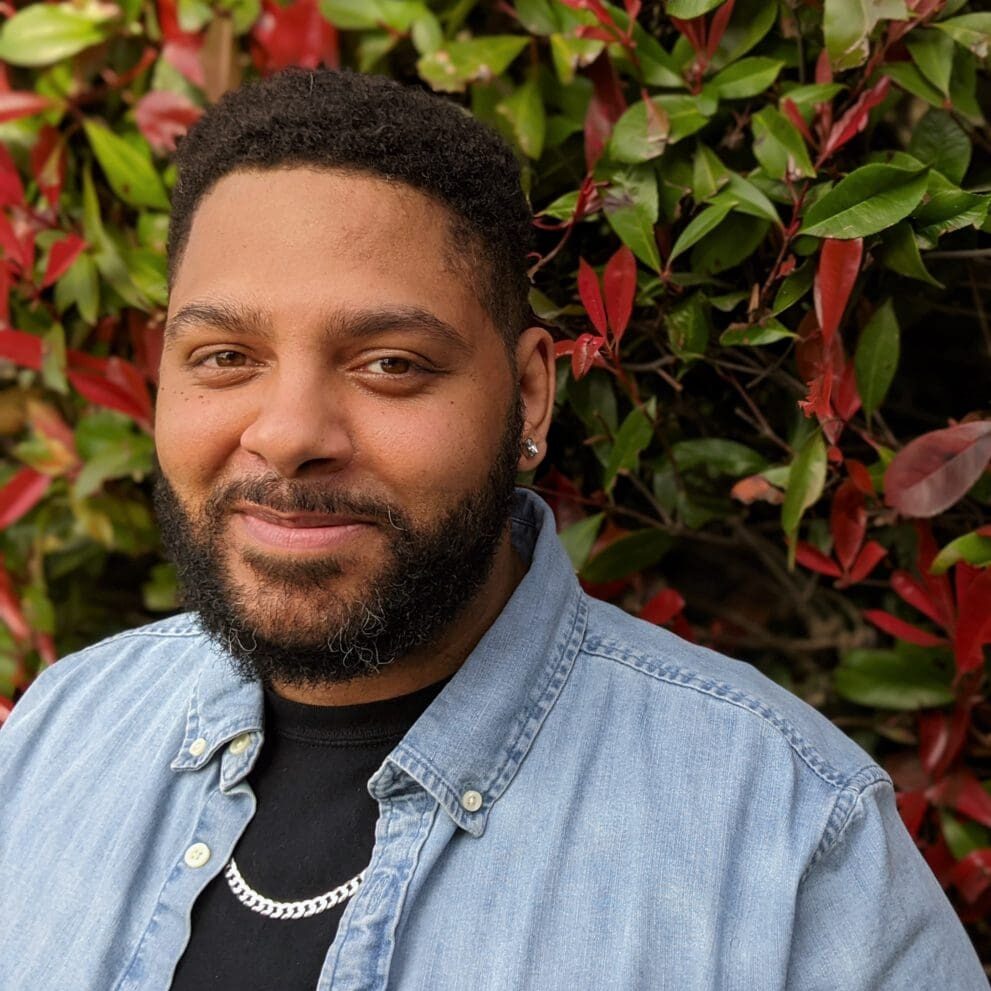Playwright Profile
Currently residing: Seattle
Grew up in: Between Seattle and a couple smaller cities around Washington
Creative beginnings: I have ALWAYS been a storyteller. I was probably the only 9-year-old in my apartment building who had a typewriter. By the time I was 10, I had my own Goosebumps-inspired book series and a one-man rendition of The Nutcracker.
During a middle school assembly, the poet Rajnii Eddins delivered his spoken word piece about the Middle Passage. He spoke with such power, passion, and poetry. There was music, there was poetry, there was heart-wrenching truth, there was ancestral connection, and centering all of it—there was Black pride. Just one 2-minute performance had completely reshaped what I thought storytelling and performance could be, while searing into my mind that there was a place for me and for my stories.
Playwriting empowerment and nurturance: My community and support network. My friends, family, and mentors who always entertained my ideas and offered feedback. Who came to readings. Who listened compassionately when I had moments of self-doubt. Who sent opportunities my way and encouraged me to push beyond my comfortability. Who graciously reflected back to me what I was saying when they didn’t know what I was saying. Who empower me to take up space. They have all nurtured and empowered my writing, and continue to do so.
Writing process: My writing process starts with an idea that really has my blood pumping. I get lots of ideas, but I know it’s the right one to write right now if every fiber of my being is vibrating. From there I start to build the world of the play and I fill it with characters. Themes will be solidifying at this point. There’s likely also research going on which informs all of the above, particularly if the play idea comes from a less personal place. A story outline emerges. Included in the story outline are specific, powerful stage images and moments that I really want to see/write, bits of dialogue and exchanges.
Lately, with each new play, I’ve been challenging myself to explore something new. I want each of my pieces to feel unique, and I want to continue to grow as a writer. So, I’ll kinda create a fun little game, complete with rules about what this play can and can’t include, and a short list of technical goals I want to accomplish as a writer. Once I get through an outline, I’ll begin writing the play. The play and the outline adjust throughout this process.
I’ve noticed that the first draft is kinda like running a reconnaissance mission. It’s about learning as much information as I can about the characters and the world they inhabit more than anything. Usually, the draft is somehow both over and underwritten. Not all the dots may be connecting in the most efficient or effective ways, but at least the dots are mostly there. Mostly.
Once the draft is done, my housemate graciously listens to me read the entire play to her. She might offer a few spare reactions, but just having the chance to speak the words out loud and to hear how it moves gives me even more information. Shout out Fantasia!
A play workshop might happen here with brilliant, smart, compassionate humans. Out of that work comes the beginnings of the second draft.
The second draft is about rearranging all of those dots. Taking all of the little moments that work in the first draft and getting them to talk to each other in a way that feels dynamic, organic, and dramatically pleasing. This draft is really about moving away from talking heads and towards getting the action to be clear. Literally whole chunks of the play may shift around or go away entirely during this process.
Insert another workshop or production here?
The inspiration behind your play: Seeing all the white cowboys in classic Western films made me wonder, “Where are the Black cowboys? What were their lives like during this time? Where are their stories and why aren’t they on stage?” And the more research I did, the more fascinated I became with the time period.
The American Frontier is an overly romanticized and whitewashed period in American history. So, I wanted to write a story set in that time period with Black people as the protagonists, and in a romance all their own. But I didn’t want to write a sprawling, gunslinging epic. I wanted to tell a small-scale story with large-scale implications. Not overly romanticized. Not outrageous. But human, and grounded in the social and political realities of the ranching industry in the late 19th century.
While this play may not be a Western in the true sense, it is built on the genre’s bones.
Favorite moment or line: “Take me to Heaven.” You’ll know when you hear it. lol
Most looking forward to at ANPF: I’m just really looking forward to hearing this brand-new draft of the play. Scenes have moved from opposite ends of the play. There are new scenes, new plot points, new interactions. I can’t wait to dive in and see how it all works. I’m also so excited to be working with a new group of actors!
Hope for audience takeaways: I just want audiences to jump on board for the ride and let themselves be taken by it. I’m hoping that they will come away thinking about how our capacity to love each other is challenged when we find ourselves on different paths from those we choose to love.
I’m hoping they come away thinking about the ways in which we show up or don’t show up for others. Where’s the line drawn for putting our own needs ahead of others? And how do those choices ricochet throughout time?
For some people in the audience, I’m hoping they will investigate their own thoughts about race and how they may be upholding and benefiting from white supremacy.


